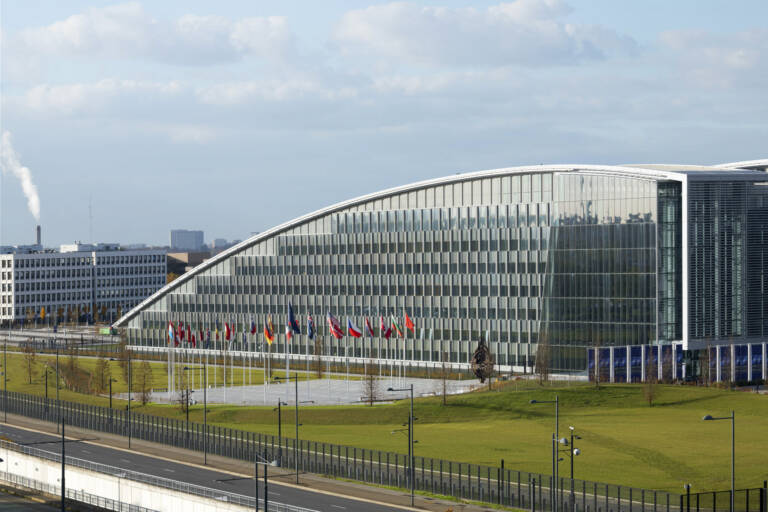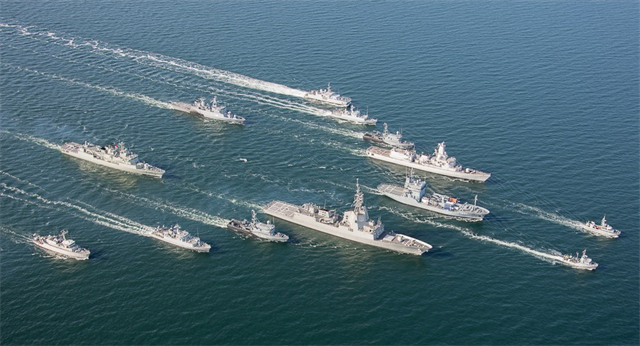The uncovered point: NATO is not obliged to intervene in the event of an attack on Hawaii

Hawaii is a U.S. territory in the Pacific that hosts some major military outposts in the region, including Pearl Harbor Naval Base and the headquarters of the U.S. Indo-Pacific Command, which overlooks adversaries such as China and North Korea. Curiously though, if an attack were launched on this strategic US territory, NATO members would not be legally obligated to defend Hawaii.
To be clear: a Russian attack on Sweden would trigger Article 5 of the NATO treaty and therefore the obligation of all 30 other countries to intervene in Stockholm's defense. If, ironically, the Russians bombed Pearl Harbor, this automatic obligation would not be triggered automatically.
David Santoro, president of the Pacific Forum think tank in Honolulu, was recently quoted by CNN as saying, “It's the strangest thing,” pointing out that Native Hawaiians don't know they aren't covered by the protection NATO allies enjoy thanks to to the collective defense clause.
“People tend to think that Hawaii is part of the United States and therefore covered by NATO,” he noted. Although Hawaii is technically the 50th state of the United States of America, it does not enjoy the same privileges as other states. “The argument for not including Hawaii is simply that it's not part of North America,” Santoro says.
A treaty problem
The Washington Treaty, which established NATO ten years before the state of Hawaii, made the exclusion clear. Although collective self-defense against a military attack on any member state is permitted by Article 5 of the Treaty, Article 6 limits the area in which such defense can be used. This article states that:
For the purposes of Article 5, an armed attack against one or more Parties is deemed to include an armed attack:
-
- on the territory of one of the Parties in Europe or North America, on the Algerian Departments of France 2, on the territory of Turkey or on the islands under the jurisdiction of one of the Parties in the area of the North Atlantic north of the Tropic of Cancer;
- on the forces, ships or aircraft of any of the Parties, when located in or flying over these territories or any other areas in Europe in which the occupying forces of any of the Parties were stationed at the date of entry into force of the Treaty, or the Mediterranean Sea or the area of the North Atlantic north of the Tropic of Cancer.
Hawaii is not covered by Article 5, according to a U.S. State Department spokesperson, but any circumstances that could impact the 50th state should be covered by Article 4, which states that members will consult when “the integrity territorial, political independence or security” of any member is threatened.
Experts believe that because some other members also have territory outside the boundaries specified in Article 5, any revision of the treaty to add Hawaii is unlikely to be approved by consensus of all members.
For example, when Argentine troops invaded the Falkland Islands, a disputed British territory in the South Atlantic, NATO refrained from participating in the conflict with Argentina in 1982, even though the United Kingdom was a founding member of NATO. So, if Hawaii were attacked in the event of an armed confrontation between the United States and China or North Korea, NATO would not automatically spring into action.
This becomes complicated when viewed in the context of the emerging military might of America's adversaries and an apparent increase in their arsenal of long-range conventional and nuclear missiles, which could target a major US military outpost in the region and annihilate it with a single strike.
Hawaii may be caught in the winds of war
There have been renewed calls to review the wording of the NATO treaty, due to the emergence of North Korea and China as geopolitical adversaries of the West. This essentially positions Hawaii as NATO's western flank, but the overhaul is unlikely to happen.
There are various reasons why this revision is not likely:
- first of all the extension to Hawaii would also entail the expansion to other territories of NATO countries outside the North Atlantic theatre. For example there would be French Polynesia, French New Caledonia, Guyana, the Falklands, various British bases in South Atlantic and Indian Ocean, New South Georgia, Kerguelen Islands. Potential threats to these remote territories would come from multiple sides (e.g. Argentina for the Falklands or New South Georgia).
- the scope of intervention would be enormously expanded and defense responsibility would fall on the few countries (UK, USA, and France) that operate outside the European context.
Earlier this month, John Aquilino, head of the Indo-Pacific Command, said Wednesday that he believes the Chinese military will be ready to invade Taiwan by 2027.
US President Joe Biden has stated on multiple occasions that US forces will defend Taiwan in the event of a Chinese invasion. This essentially implies that a conflict between the United States and China in the Indo-Pacific could be just a matter of a few years.
The US territories of Hawaii and Guam are believed to be crucial for launching military operations in a possible conflict in the Indo-Pacific, albeit without NATO protection. In addition to China, North Korea's relentless missile program also poses a significant threat to Hawaii geographically.
Some defense analysts believe China could follow the example of World War-era Japan and aim to quickly win a war against the United States, such as the Japanese attack on Pearl Harbor.
Beijing, however, can put a contemporary spin on it by launching a major “surprise attack” that could destroy most of the Indo-Pacific region's military assets.
As happened with Peral Harbor in 1941, China focuses on the Pacific framework and in this area it can have the military resources to overcome the defense of the USA. This could even be simulated using methods such as collisions between Chinese merchant ships and American civilian or military infrastructure.
If, however, we move on to consider traditional threats, missiles such as the DF21 and DF 31 , which can also be launched from submarines, are capable of hitting and completely eliminating US defenses and forces both in Guam and Pearl Harbour. All without NATO intervention.
The intervention would be up to AUKUS or, at most, to the forces of the individual allies in the Pacific, but there is no automatic system like that of the Atlantic Pact.

Thanks to our Telegram channel you can stay updated on the publication of new Economic Scenarios articles.
The article The point discovered: NATO is not obliged to intervene in the case of attack on Hawaii comes from Economic Scenarios .
This is a machine translation of a post published on Scenari Economici at the URL https://scenarieconomici.it/il-punto-scoperto-la-nato-non-e-obbligata-a-intervenire-nel-caso-di-attacco-alle-hawaii/ on Sun, 31 Mar 2024 17:28:50 +0000.

